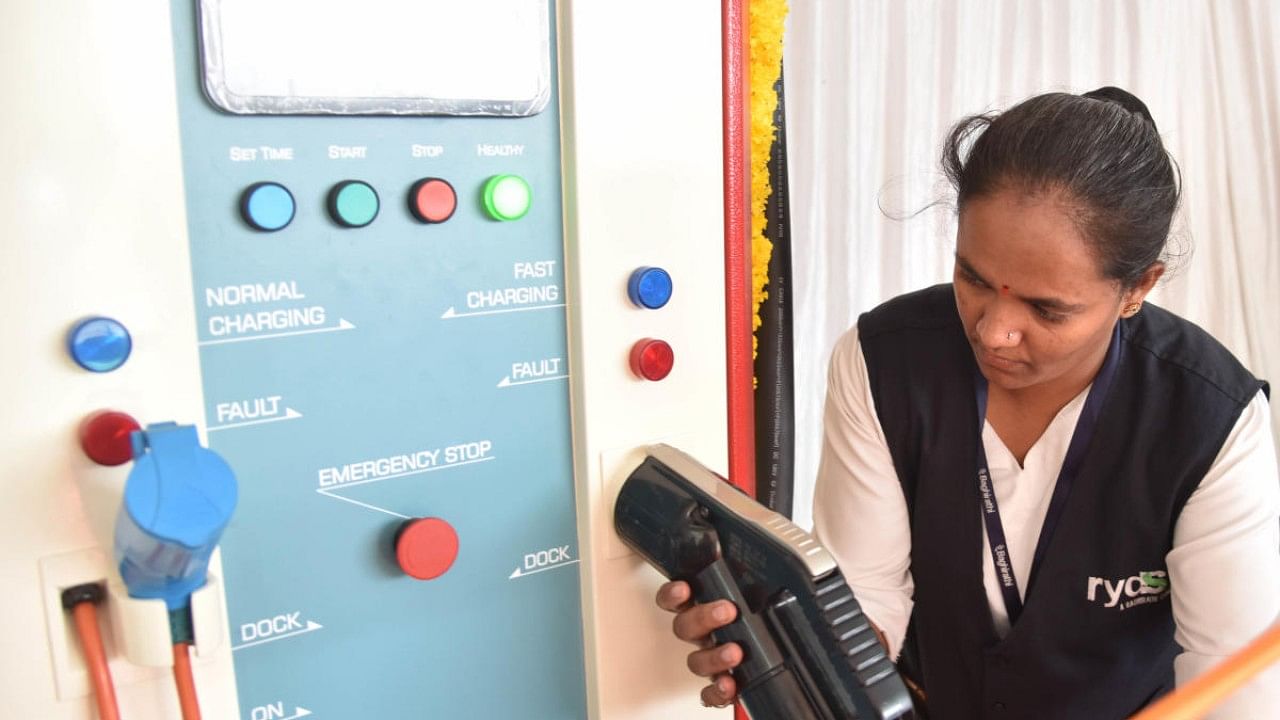
If you thought fast charging was the perfect way to solve the range anxiety problem faced by electric vehicle owners in India, think again.
Range anxiety is what a driver feels when the EV battery is low on charge and an electricity source is not easily available, igniting a fear of getting stranded.
While fast charging – where an EV battery is powered at a rapid pace – is being touted as a good solution to this problem due to its low turnaround time, EV experts told DH that it came with its own set of problems, raising questions about its applicability in the world's fourth-largest auto market.
For starters, fast charging could hurt battery life.
"Fast charging does reduce battery life," said Magenta Mobility founder Maxson Lewis. "In fact, all OEM user manuals require that after every three fast-charging sessions, the vehicle should go through slow charging to allow for cell balancing, which is part of the slow charging cycle."
Some others zoomed in on infrastructure-related changes.
"India is a country with power cuts where the grid will be a limiting factor," said Avinash Sharma, co-founder of charging platform ElectricPe.
Although the technology is ready, fast charging cannot be a substitute for regular charging and battery-swapping since they have separate applications, Sharma said, adding that real estate and enhancement of electricity loads remained key issues in scaling up fast charging.
High costs, vehicle compatibility, grid stability, and concerns around ‘incorrect’ usage were some of the main challenges around fast charging, according to Suraj Ghosh, director, Powertrain & Compliance Forecasts, South Asia, S&P Global Mobility.
In tech we trust
Some industry insiders argued that the degradation due to fast charging could be addressed through a tech-driven approach.
“The cell only understands voltage, current flow, temperature and impedance. As long as you take care of it, you can play around it and push its performance,” Exponent Energy co-founder Arun Vinayak said. “You just need to make sure all the cells in a battery age consistently.”
“Since original equipment manufacturers do not have the technology, they are worried about degradation and are pushing for slow charging,” said Pankaj Sharma, the co-founder of Log9 Materials, which develops battery packs that can fast-charge.
Due to this, they are forced to design bigger batteries to carry more range so that they need not be recharged frequently, he added.
“So, everyone is pushing the EV industry to the point that charging should happen late in the night. But that’s not how vehicles will be used.
In the B2B segment, they will be driven throughout the day and may get stuck if fast charging is not available,” he explained.
While fast charging is not critical for personal mobility, it might be crucial in the long-haul commercial EV segment, especially since battery-swapping may not be possible for larger vehicles.
“Any technology that reduces downtime of commercial operators will be accepted, be it fast charging or swappable batteries,” Ghosh said.
Some disagreed
“Even 15 minutes won’t be enough for fast charging, it has to come down to five minutes,” according to battery-swapping solutions company RACEnergy co-founder Arun Sreyas, who underlined how it won’t work for B2B cargo, fleet operators, cab and auto drivers.
“It will only work for big e-commerce players like Amazon and Flipkart who have fixed floating and predictability of fleet,” he said.